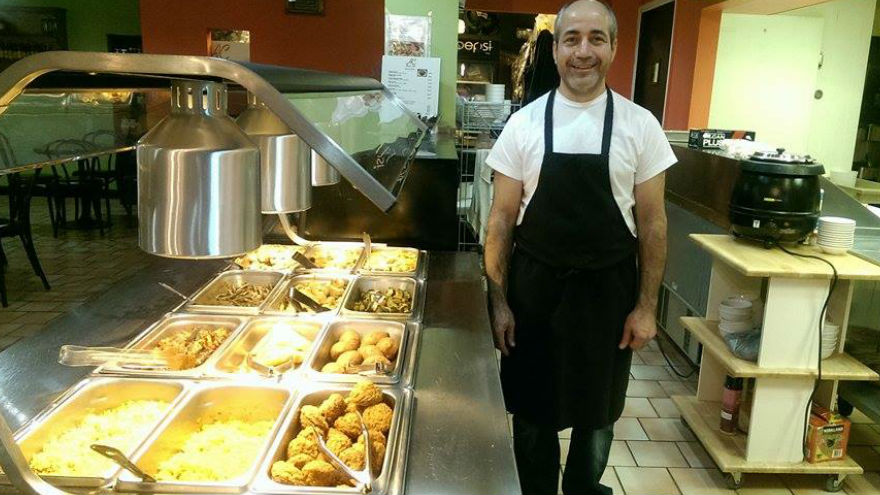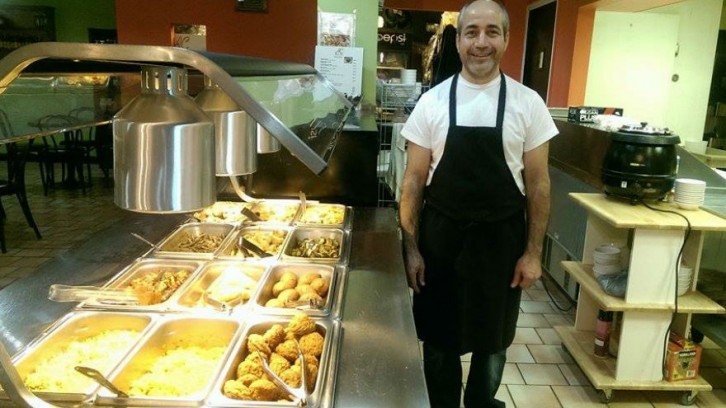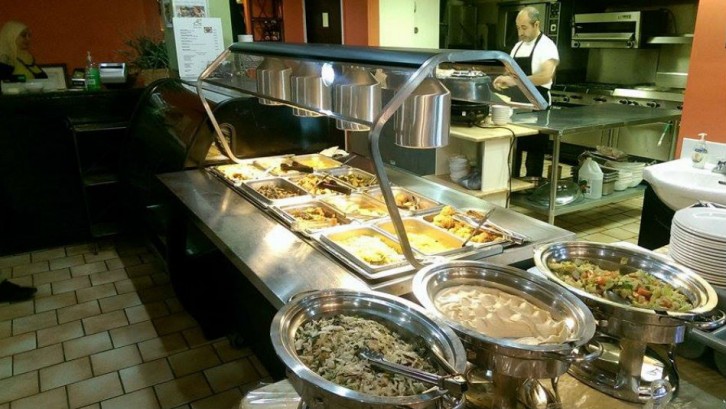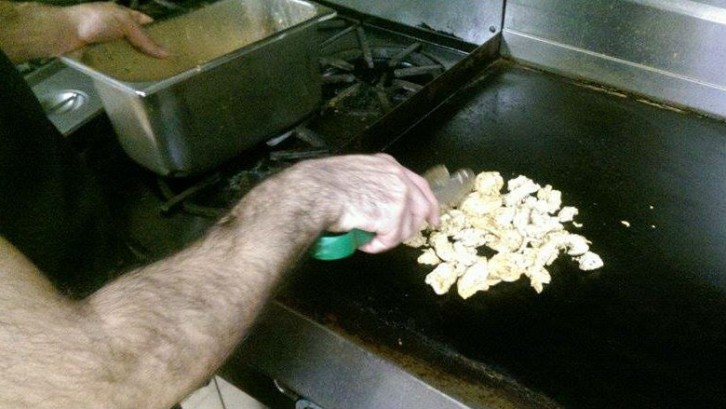Syria
Introducing you to the Aleppo you won’t hear in the news
The owners of the Aleppo Café have kept their “special” name to keep Syrian traditions alive

caption
Abdulrahman Jabi, co-owner and chef of Aleppo Cafe on 1496 Water Street. Jabi uses traditional Aleppian ingredients and makes handmade spices.
caption
Abdulrahman Jabi, co-owner and chef of Aleppo Café on 1496 Water Street. Jabi uses traditional Aleppian ingredients and makes handmade spices.When you hear the word Aleppo these days, friendly, liberal and flavourful aren’t the first things you think of. Instead, the Syrian civil war has hijacked the name and in the past four years Aleppo is frequently heard on the news in the context of ISIS, armies, refugees and death. But one local restaurant owner is bringing a taste – literally – of this ancient Syrian city to Halifax.
Hekmat Ani, co-owner of Aleppo Café with her husband and chef Abdulrahman Jabi, previously had their restaurant on Quinpool Road. After a two-year break from their business and coincidentally after the war had begun in Syria, they re-opened Aleppo Café in 2012 on Water Street, unashamed to re-use the name again.
“Some people encouraged us not to, because of Aleppo’s usage in the news recently, but you know what’s shocking? The name of our restaurant didn’t affect our business the way you’d think – maybe for Arabs here yes, but the rest actually became more interested with questions,” said Ani, who lived in Aleppo for a time.
With divided political opinion among Syrians, the restaurant name risked causing distrust and alienating customers. However, Ani says she is proud of its name as it gave her the opportunity to showcase a side of her city most North Americans and locals here are unaware of.
Ani began introducing her curious customers to the Aleppo she knew and last visited in 2009 by putting politics and war aside, and instead invited discussion of Aleppo’s rich history, lifestyle and food.
“After talking to a few [people], some customers started to go home and do some research, then they would come back to us and discuss Aleppo’s history. Others would become sympathetic and feel bad that much of its ruins have been destroyed,” said Ani.

caption
Buffet section of Aleppo Café. Their lunch buffet is served daily with around 12 varying dishes.“We like to change our dishes daily and infuse other eastern foods to keep it creative.”
Speaking factually about Aleppo is important to Ani because she doesn’t want people to be influenced by stereotypes and false information; she makes it a priority to relate the city’s history and tradition with accuracy.
“I don’t want people to think Aleppo is so conservative. You know, we had this street called Tawheed and there was a mosque and church in front of each other. That is Aleppo – it has varying religions and we all would celebrate each other’s holidays. It’s not some Islamic state like ignorant ones might think,” said Ani.
Aleppo, in fact, is rich with culture, since it is the one of the oldest cities in the world. From the Aleppo citadel, considered one of the largest castles in the world, to its varying architecture and roads reflecting its Greek, Roman, and Ottoman occupants, this city is also popular for its distinctive food.
Ani and Jabi reflect that tradition in their restaurant by making sure they use the same Aleppian spices famous in the region for its taste.
“Aleppo is popular for ‘mahashi’ (stuffed vegetables) throughout the Middle East – as well as our kebas and kebabs. So what we do here in our restaurant shocks people. The type of local oil we use and the way it’s prepared can only by done by an Aleppian,” she said.
Chef Jabi makes what Aleppo residents call “the seven spices”: a single spice made of seven special ingredients whose particular variation is a secret among its owners
Many of the ingredients used are available only in the Arab world, which Ani says can be expensive. Staple dishes such as their hummus, falafel, Molokieh (also known as Jews mallow), and keba are ones that many local Lebanese restaurants serve. But the owners say their food’s unique taste sets their restaurant apart.

caption
Chef Jabi preparing chicken.Eric Burchill, a frequent customer who works nearby, says the political chaos surrounding the name of the restaurant doesn’t concern him. Instead, he appreciates ethnic restaurants like these in Halifax.
“It’s not the first thing I think of when I come here to get a sandwich. I think it’s great to have a variety of business owners here putting down roots and contributing to the economy. It’s great to be able to support them,” said Burchill.
Though born in Canada, Ani visited Aleppo every summer and even lived there for a year before moving to Halifax permanently. However, she still misses the ambiance and nature of Syrian gatherings, which she says are the most memorable to her.
“When I see any nationality or a group of young girls gathering here for lunch, it reminds me so much of Aleppo. I feel that there’s something from Syria’s tradition that lives on even here in Halifax and that although our countries face chaos, food can bring us together,” she said.
Underneath the name of her restaurant and part of the restaurant’s logo, a picture of the Aleppo Citadel sits underneath, a reminder of the pride Ani says she feels with her city’s history and culture.
“I wouldn’t change it [the restaurant name] for anyone or anything. There is something special about it,” she said.

